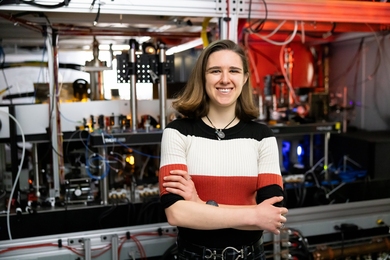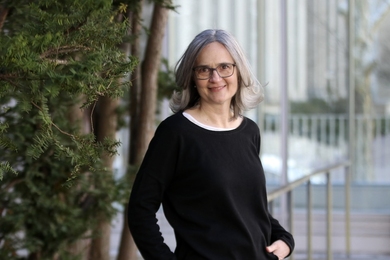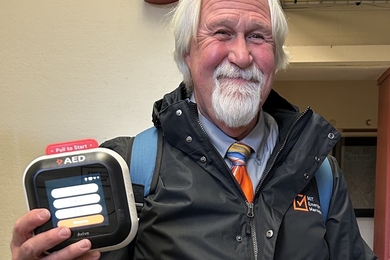A recent MIT graduate who enrolled in the Institute at the age of 16 will complete a joint MBA and law program on full scholarship as a recipient of the prestigious Jack Kent Cooke award.
Raja H.R. Bobbili, a 2008 graduate in electrical engineering and computer science and economics, will use the $50,000-a-year, six-year scholarship to fund his graduate work at Harvard University. The Jack Kent Cooke Foundation awards its scholarships to exceptional individuals who have not only achieved academic excellence, but also demonstrated the will to become leaders in their chosen fields.
"I am truly honored to receive this scholarship," Bobbili said. "I intend to continue my efforts in social entrepreneurship, but would also like to help develop appropriate legal entitlements to promote technology and foster greater development in the sub-Saharan Africa region. The Jack Kent Cooke scholarship will play an instrumental role in advancing these efforts."
Brought up in Zambia, Bobbili entered MIT at 16 and soon began teaching for-credit seminars on poverty and AIDS in Africa through MIT's Experimental Study Group (ESG).
He founded Outsource-Africa in 2005 after conducting a detailed study of the U.S. software outsourcing industry. He envisioned that Zambian software professionals would be able to offer competitive, world-class software outsourcing services at affordable prices and formed the organization to recruit, employ and train that country's best engineers.
Bobbili also helped launch MIT's student residence, the International House for Global Leadership, or iHouse, a living group where globally minded students live together to facilitate collaboration.
"I envisioned a house that would develop leaders, develop a strong community and create a positive impact in the world," Bobbili said during the house's opening in 2007. "By learning in iHouse, students will understand other countries' problems and have the skills to act on those problems. By living there, they will support each other with the same kind of kinship ties that exist in other areas of MIT."
In 2007, he was awarded the Karl Taylor Compton Prize, the highest award presented by the Institute to students and student organizations in recognition of excellent achievements in citizenship and devotion to the welfare of MIT. He graduated this past June Phi Beta Kappa from MIT.
Students must be nominated for a Cooke scholarship. The Cooke foundation accepts a maximum of two nominations per school each year and selects approximately 50 students to receive scholarships.
Department of Mechanical Engineering Professor Alex Slocum nominated Bobbili for the Cooke scholarship. Bobbili was originally Slocum's advisee and later served as an associate adviser for Slocum, who is also the director of the ESG.
Reflecting on Bobbili's time at MIT and in ESG, Slocum remembered, "Raja was never shy and always wanted to do things to help others. From helping fellow students with math or physics problems to helping Zambia set a workable AIDS policy, Raja was always there for others. I predict he will one day be president of Zambia and I would not be surprised if he helps lead all of Africa to a bright future."






